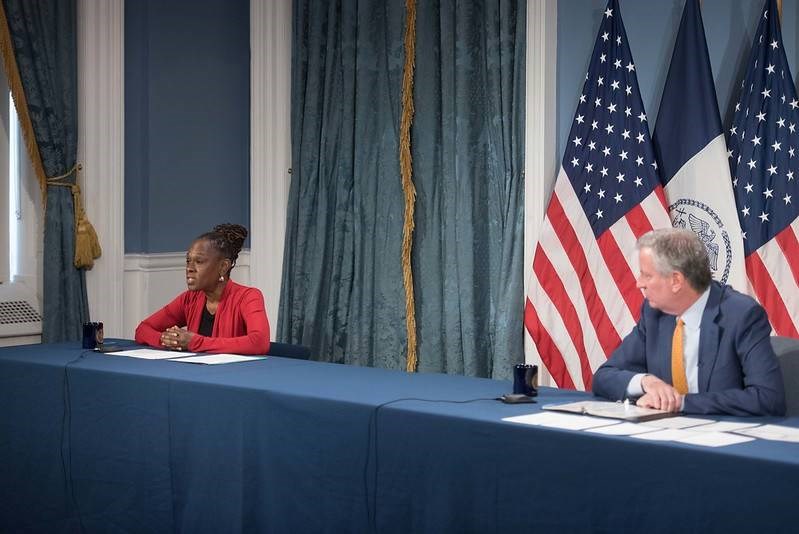Of more than 17,000 confirmed COVID-19 deaths in New York City, over half were in communities of color. Communities with the highest mental health needs may be the least likely to access mental health resources during and after the pandemic, according to NYC Health and Hospitals. And their needs have multiplied in the wake of nationwide protesting and the murder of Black people at the hands of the NYPD.
As a result, New York's Taskforce on Racial Inclusion & Equity, chaired by First Lady Chirlane McCray and health care programs, such as NYC Care extensive mental health and health care support programs are being implemented within the next few months. With the help of NYC Care, the task force plans to tackle the lack of mental health care in disenfranchised communities.
"COVID-19 exposed our city's most painful disparities, including access to medical care," de Blasio said in a statement Tuesday. "By expanding NYC Care, we are tackling these inequities head-on, and bringing affordable healthcare and mental health resources to the communities that need them the most."
Within the task force's plan, the city will redirect mental health first aid (MHFA) staff to deliver mental health disaster responses to target populations. From July to December 2020, these sessions and training programs are projected to be both online and in-person reaching nearly 10,000 previously underserved NYC residents.
"We have peers available, someone, with lived experience," said McCray. "So, if someone wants to speak to somebody who has the experience of living with alcoholism or someone who has the experience of living with mental illness, they are also trained to take calls and help people through a crisis or temporary support."
Starting this fall, the task force also plans to implement "Taking Care of Yourself, Your Neighbor, and Your Community: An Equity-Centered Anti-Racist Mental Health Response to COVID-19." These two- to three-hour sessions will innovate the way we approach mental health crises, centering conversations around issues of race and equity.
Looking at structural racism as a starting point for tackling mental health issues is still fairly new for practitioners. But approaching it from a race standpoint builds from the systematic issues that lead to trauma, while teaching residents healing practices, empathy and increased ability to care and cope for themselves and others.

However, lack of internet access remains an issue with some in the community, as well social distancing regulations, which limit in-person sessions.
The plan, so far, is to continue providing tablets to students and older adults through a number of programs, for the use of online schooling and companionship. There also will be outreach, calling people, and relying on community members and leaders to get the word out.
"We are working right now with community-based groups to help get the word out and engage residents," said McCray. "Clergy and community-based organizations are an incredibly valuable partner for us, because they are trusted. They know these communities better than we do."
In addition to the task force's extensive mental health initiative, there are plans to offer disenfranchised New Yorkers access to guaranteed health care through an expansion of NYC Care to Queens and Manhattan. The City will also open three COVID-19 Centers of Excellence by September in Queens, Brooklyn and the Bronx. The Centers of Excellence are comprehensive and affordable offices with pulmonary care, radiologic and diagnostic services, as well as extensive mental health services. The centers are the basis of how NYC plans for long term COVID-19 recovery in our city's hardest hit and most disenfranchised communities.
"I want black and brown New Yorkers living in these communities to know that your city sees you," said McCray, "and we will not rest until your neighborhoods are healthier, stronger, safer and fairer now and after this crisis."



